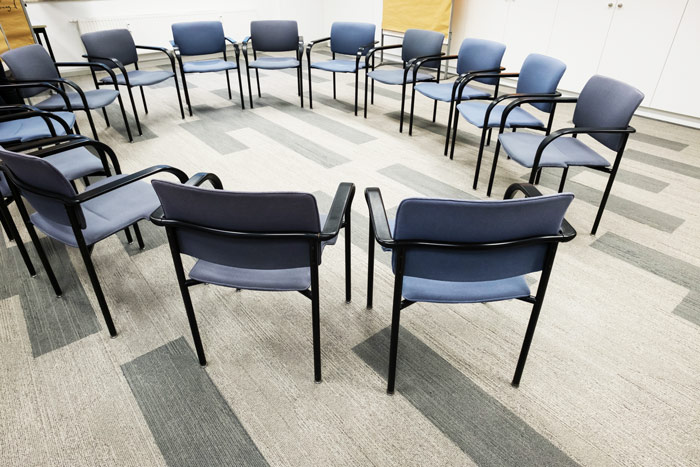Alcoholics Anonymous is surprisingly famous for an organization with “anonymous” in its name. AA and the 12-step program at its heart are what most people think of when they think about recovery from a substance use disorder. The idea of a group of people sitting in a church basement, using only their first names, and sharing their stories of addiction and recovery has completely permeated popular culture.
Alternative Recovery Programs
In fact, it might be beneficial because these pop culture portrayals of AA and similar groups might help someone decide to pursue the 12 Steps. Seeing it represented on TV or in the movies demystifies it, making it more comfortable for people to explore whether it will work for them.
However, 12-step programs don’t work for everyone. Maybe they won’t work for you or for your loved one. If that turns out to be the case, you’re going to want some other options. Here are alternative programs worth considering if you discover that the 12 Steps don’t get you where you need to be.
Celebrate Recovery
While AA encourages those in recovery to give themselves over to a higher power, the program is not associated with any specific religion. If you would prefer a program that is explicitly tied to Christianity, Celebrate Recovery is a possible option.
It should be noted that Celebrate Recovery does use a modified version of the 12 Steps, but they approach them from a distinctly Christian point of view—including Bible verses associated with each step. The program is prepared to help you maintain your sobriety and is also equipped to address other issues such as past trauma, anger issues, and more.
The Celebrate Recovery website can help you find a church in your area that offers the program. While Celebrate Recovery is intended for practicing Christians, you do not have to be a member of the sponsoring church in order to participate in the program.
Refuge Recovery
Perhaps you are more interested in engaging with a program grounded in Buddhist principles and practices. If so, Refuge Recovery might be the right answer for you.
Refuge Recovery focuses on four truths rather than 12 Steps. Those truths are:
1. addiction is suffering
2. the cause of addiction is repetitive craving
3. recovery is possible
4. the path to recovery is available
The idea that the Dharma—which might be thought of as the nature of reality—has the potential to relieve suffering is at the heart of Refuge Recovery’s approach.
The Refuge Recovery website provides additional information and a meeting locator. It also offers online resources, including virtual meeting options.
Secular Organizations for Sobriety and LifeRing Secular Recovery
Maybe religion is not your thing at all. There are still excellent recovery options, including Secular Organizations for Sobriety (SOS), which was founded in the 1980s by James Christopher specifically for those who don’t want to include religious tenets as part of their recovery journey. SOS is dedicated to self-reliance and personal responsibility, and the organization offers “suggested guidelines” rather than 12 steps. The central idea is that maintaining your sobriety must always be your first priority.
LifeRing Secular Recovery spun off from SOS in 2001, but its emphasis on sobriety, secularity, and self-help is still in keeping with the approach of the original organization. Meetings focus on motivation and efforts to maintain sobriety.
Both SOS and LifeRing have useful websites with more information. In the case of LifeRing, the website includes tools to help you start a new group in your area.
SMART Recovery
Based on a cognitive behavioral psychotherapy known as REBT—which stands for Rational Emotive Behavior Therapy—SMART Recovery is based on self-help techniques that can aid individuals in their efforts to overcome destructive habits.
At its heart is the notion that our thoughts create our feelings and lead to our actions. As a result, change can be achieved if we stop dwelling on errors of the past and instead stay focused on making positive changes in the present and the future.
The SMART Recovery website has more information as well as a search function for finding local meetings and options for online meetings.
Women For Sobriety
While some other programs, including Refuge Recovery, offer women-only meetings, Women for Sobriety is wholly devoted to serving the needs of women in recovery. Founded by Jean Kirkpatrick—who struggled with alcohol abuse—in the 1970s, Women for Sobriety empowers women by boosting self-esteem and replacing negative self-talk with self-affirming statements.
The program encourages emotional and spiritual growth as well as problem solving, physical wellness, and personal responsibility.
The Women for Sobriety website includes both more information about the program and a search function for finding meetings in your area. Online support is also on offer at the website.
Find Your Place Here
The Aviary Recovery Center is fully committed to providing treatment and resources that are personalized for your (or your loved one’s) situation. Twelve-step programs are not a one-size-fits-all solution, and neither is a successful rehab experience. At The Aviary, we will listen to you, design a treatment program specifically for you, and ensure you have access to the information and resources you need to maintain your sobriety.
(314) 464-0222. We’re here to help.










